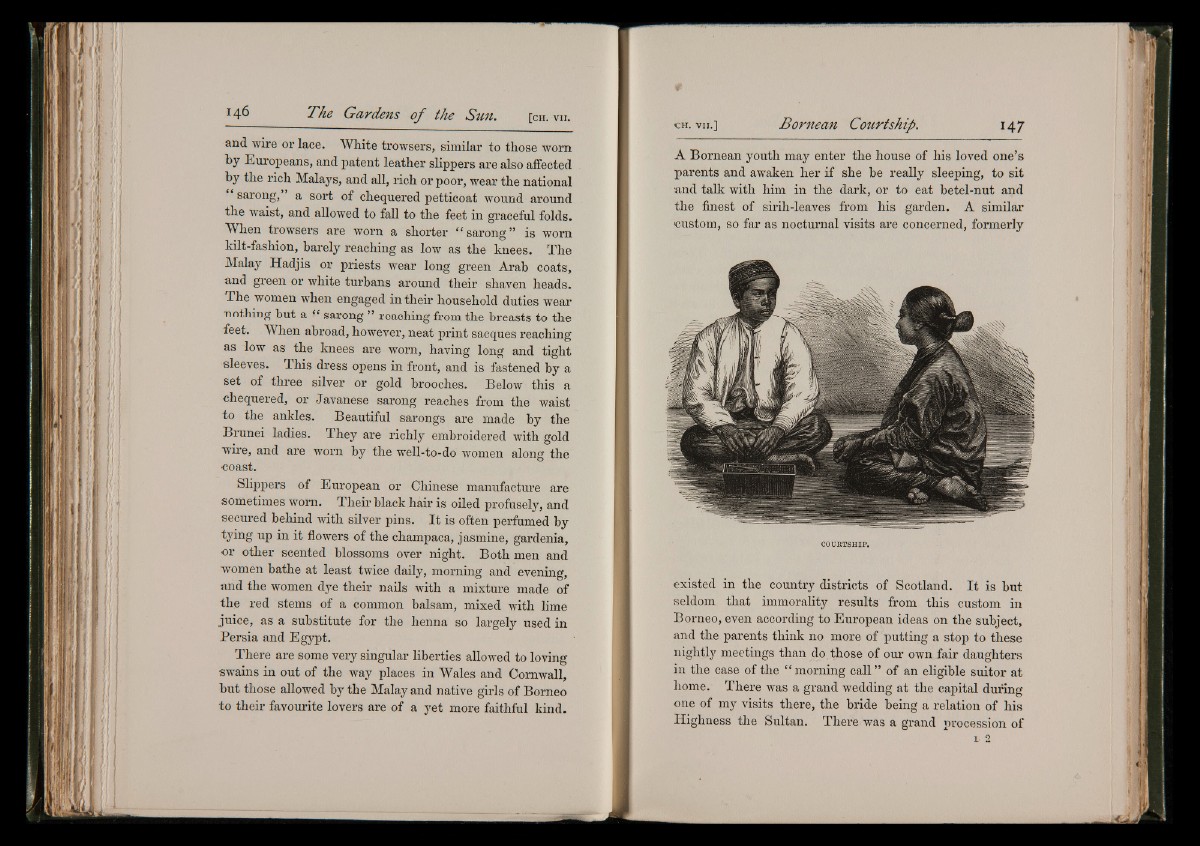
and wire or lace. White trowsers, similar to those worn
by Europeans, and patent leather slippers are also affected
by the rich Malays, and all, rich or poor, wear the national
sarong, a sort of chequered petticoat wound around
the waist, and allowed to fall to the feet in graceful folds.
When trowsers are worn a shorter “ sarong” is worn
kilt-fashion, barely reaching as low as the knees. The
Malay Hadjis or priests wear long green Arab coats,
and green or white turbans around their shaven heads.
The women when engaged in their household duties wear
nothing but a “ sarong ” reaching from the breasts to the
feet. When abroad, however, neat print sacques reaching
as low as the knees are worn, having long and tight
sleeves. This dress opens in front, and is fastened by a
set of three silver or gold brooches. Below this a
chequered, or Javanese sarong reaches from the waist
to the ankles. Beautiful sarongs are made by the
Brunei ladies. They are richly embroidered with gold
wire, and are worn by the well-to-do women along the
coast.
Slippers of European or Chinese manufacture are
sometimes worn. Their black hair is oiled profusely, and
seemed behind with silver pins. It is often perfumed by
tying up in it flowers of the champaca, jasmine, gardenia,
or other scented blossoms over night. Both men and
■women bathe at least twice daily, morning and evening,
and the women dye their nails with a mixture made of
the red stems of a common balsam, mixed with lime
juice, as a substitute for the henna so largely used in
Persia and Egypt.
There are some very singular liberties allowed to loving
swains in out of the way places in Wales and Cornwall,
but those allowed by the Malay and native girls of Borneo
to their favourite lovers are of a yet more faithful kind.
A Bornean youth may enter the house of his loved one’s
parents and awaken her if she be really sleeping, to sit
and talk with him in the dark, or to eat betel-nut and
the finest of sirih-leaves from his garden. A similar
custom, so far as nocturnal visits are concerned, formerly
COURTSHIP.
existed in the country districts of Scotland. It is but
seldom that immorality results from this custom in
Borneo, even according to European ideas on the subject,
and the parents think no more of putting a stop to these
nightly meetings than do those of our own fair daughters
in the case of the “ morning call ” of an eligible suitor at
home. There was a grand wedding at the capital during
one of my visits there, the bride being a relation of his
Highness the Sultan. There was a grand procession of